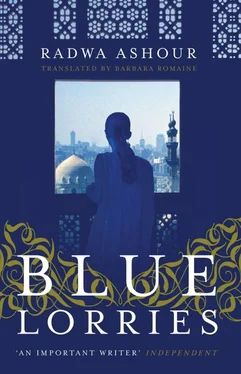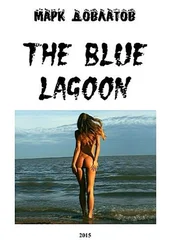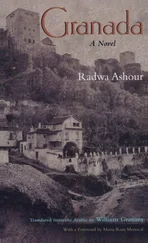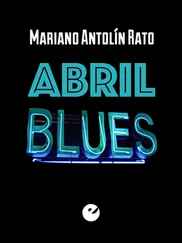One morning I awoke in tears. ‘Why did you lie to me? You didn’t tell me my father died like the rabbit!’
‘Your father’s not dead! He’s fine, and he’s coming back!’
‘You’re lying — he died like the rabbit. When I went to sleep the rabbit was on the balcony, and when I woke up the rabbit was gone! And it’s the same, just the same with Papa!’
My father had bought the rabbit for me, and my mother had taught me how to feed it and care for it. Then one morning it vanished, and my mother told me it had died.
This day my mother had to sit beside me on the bed and have a long talk with me about an important and learned man who understood many things, and said matters must proceed in this manner and not that, and this was right and that was wrong. And about officers who held a different opinion — thinking the way a headmaster thinks, that the system must be run their way. They disagreed with him, and so they put him in prison.
‘What’s a prison?’
‘It’s a place that’s locked up so you can’t get out.’
‘Like the lion at the zoo?’
‘Like the lion at the zoo.’
‘What happens next?’
‘I’m not telling you a story. I’m explaining why Papa doesn’t live with us right now. He hasn’t died — he’ll stay there for a little while, and then they’ll let him come home.’
I found it all quite perplexing; yet it was the beginning of awareness, and of a need to compare my own situation with that of others. These comparisons would preoccupy me in the years that followed, often placing me in uncomfortable positions. I wasn’t alone in this, for I recall that Mona Anis — whose father, Dr Abdel Azim Anis, was my father’s colleague, both of them university professors and both incarcerated in the same prison — confided to me that one of Abdel Nasser’s sons was her classmate. I told her I wanted to meet him, so that I could ask him why his father had put our fathers in prison, and if he didn’t know we could ask him to find out. Mona never got the chance to introduce me to the boy, for her school was in Manshiyat al-Bakri, while mine was in Garden City. But she did relate to me a detailed account of what passed between her and the classroom teacher. Mona said, ‘I asked the teacher in front of the whole class, “Whose father is better, his or mine?”’ When the teacher didn’t answer, Mona said, ‘Papa’s a university professor, he has a doctoral degree, and he used to teach at London University. When Britain attacked Egypt, he organised a demonstration in England. He left his job there and said, “I’m going back home to help my country.” His father’s an officer, and it’s true he fought in the war for Palestine and staged the revolution, but he doesn’t have a doctorate, and he’s never taught at London University! My father is better educated, and he’s more knowledgeable!’ Mona insisted that the teacher acknowledge before all the pupils that her father was the better man. The teacher, however, said, ‘This won’t do. All of you here are my children, and it wouldn’t be right for me to say that one person is better than another, or that one person’s father is better than another’s.’
I asked her in astonishment, and with a good deal of admiration, ‘You said that in class, in front of all the boys and girls?’ Mona crossed her legs, spoke more loudly and said, ‘Yes, I did,’ and she repeated the story in all its particulars. Now I admired her even more. She was three years older than I was and several inches taller, and whenever I declared that she was my friend I felt an access of pride, as if this friendship lent some of her height to my childish body, and conferred upon me a part of her authoritative mien. She knew lots of things, which she discussed in detail, while I looked on in wonder, confident that she was my superior in her wisdom and her understanding of the world, and, between us, the more capable of interpreting and unravelling its mysteries.
One day Mona visited us with her mother, and she read me a poem her father had written for her. The poem so unsettled me that I stopped listening to it, distracted by the question: Why didn’t my own father send me a poem? Did her father love her more than mine loved me? I couldn’t keep the question to myself — I confided it to my mother. She laughed, and said, ‘Her father knows how to write poetry; your father doesn’t!’
How was I to apply this new piece of information to the comparison between my father and Gamal Abdel Nasser? What reasoning could I bring to bear? I found myself thinking, ‘He doesn’t know how to write poetry to his daughter — maybe he’s no better or smarter than Nasser.’ But then the scales would tip the other way, and I would think, ‘But my father has a doctorate from the Sorbonne, he was a university professor, so surely he knows and understands more than officers do, and his political goals are superior to theirs.’
My father wasn’t there, though, while Nasser’s name, his voice, and his picture cropped up everywhere, on a daily, even an hourly, basis. He was celebrated in songs that I loved, whose lyrics I could recall, and I would sing them, whether I got the melody right or not. He wasn’t merely a leader, merely a president. He was a topic of conversation in every household and on every street and in every school — quite simply he pervaded the very space in which we grew and took shape, as if he were water or air or earth or sunbeams that we absorbed as a matter of course, becoming what we became. It was Nasser who brought us up, proud though I was of my kinship to my father. When I pronounced my own name, my voice would be normal, or perhaps softer than normal, on ‘Nada,’ but then it would grow louder as I went on to say, ‘Abdel Qadir Selim,’ as if ‘Nada’ were no more than a prop, or a point of entry, or a stepping-stone for the name that should be prominent and unmistakable. I don’t think any of these ideas ever occurred to me when I was that age, but I remember clearly what happened when I watched Nasser deliver a speech, following his words and staring intently at his posture and his facial expressions; suddenly I said to my mother, ‘Mama, doesn’t he look like Papa?’
‘No,’ my mother replied.
Then, ‘Well, maybe he looks like him.’
When I went to bed. I tried to call to mind an image of my father, the better to make a comparison, but my imagination ran up against a blank wall. I tried a second time, and a third. I didn’t realise what had happened until I found my mother kneeling by the bed, pale-faced, asking me, ‘What’s the matter, why are you screaming?’
This incident may have been a repetition of a previous one that occurred some years earlier, maybe a few months after my father’s arrest. I remember my mother kneeling by the bed, then carrying me to her big bed. She fetched a red metal box, opened it up and took out pictures of my father to show me. As she picked up each one, she would say, ‘Here’s Papa on such-and-such a day…’ Presently I calmed down and chose one of the pictures, a large one in which my father’s features were clear, and then I went back to bed. Instead of lying face-down the way I normally did, I lay on my back and held the picture up before my face. I drifted off, still holding the picture, and when I awoke in the morning I found it bent at the edges, perhaps because I had been lying on it. This started me off on another bout of crying and irritability.
Whether or not they resembled each other wasn’t the question, even if they were of the same generation, sharing Upper Egyptian origins, and both embodying the idea of ‘father’. The first was a generic father, held in common by all, while the second was the individual, actual father — with a hop, skip, and a jump I could be in his bedroom, open up his wardrobe, and run my hands over the neatly folded shirts in one of its drawers.
Читать дальше











